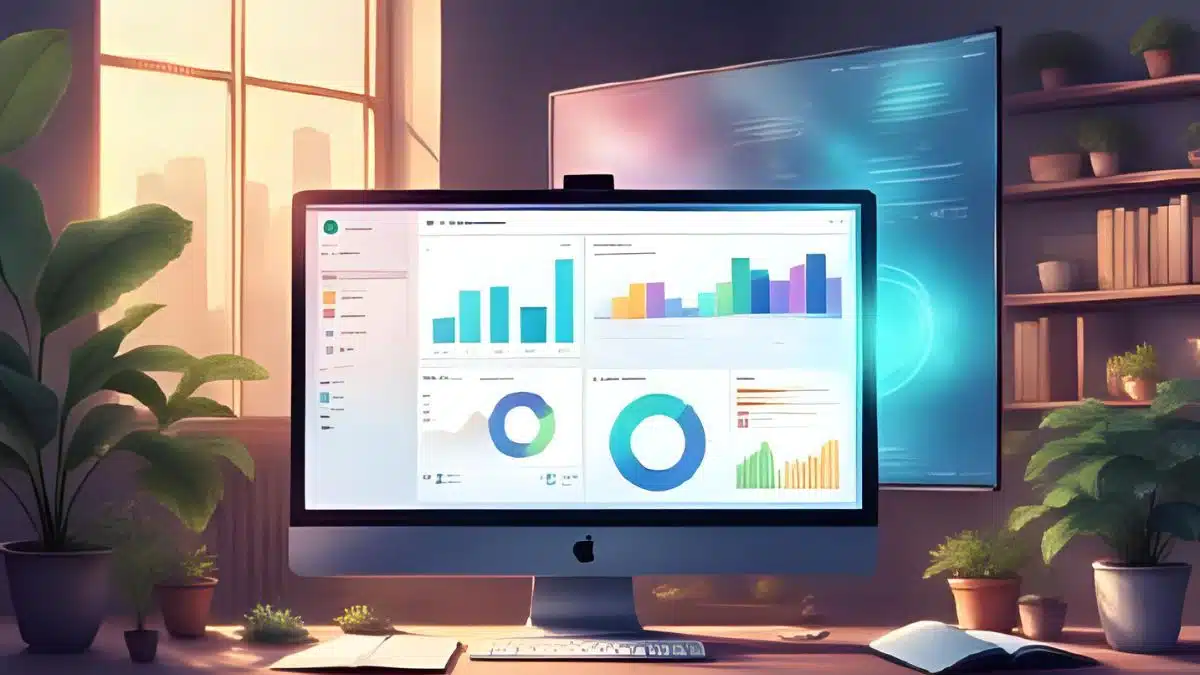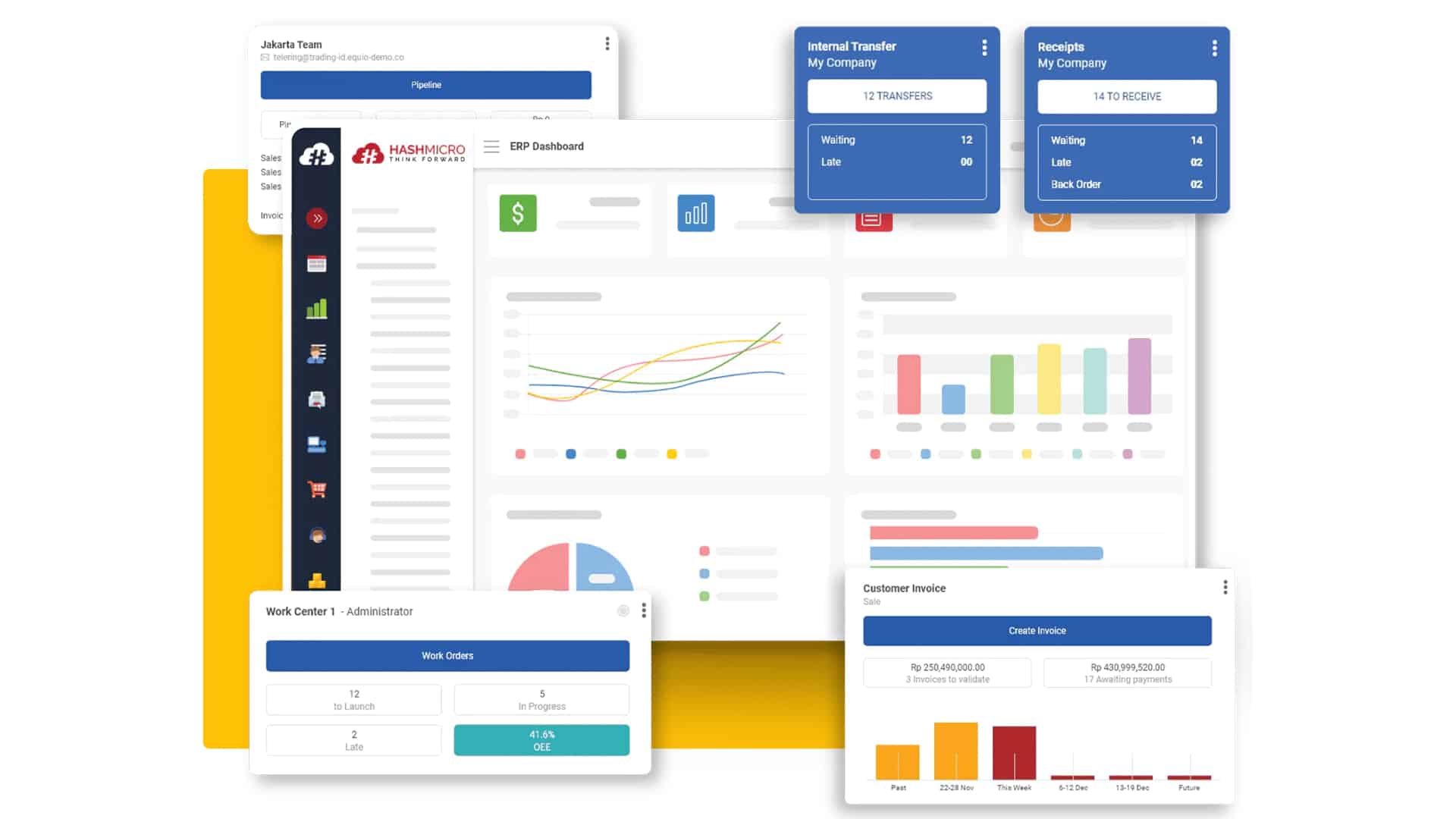Are you struggling to manage the growing number of customer support requests? As your business expands, slow responses and missed issues can frustrate customers, damage your reputation, and ultimately impact your bottom line if not addressed efficiently.
Despite automation’s emphasis, many businesses still use manual systems. A Forbes article notes that reluctance to adopt automated solutions, like software help desks, arises from high implementation costs and integration complexities, hindering full automation. This results in inefficiencies, overlooked tickets, and bottlenecks, negatively impacting productivity and customer satisfaction.
The good news is that a help desk software can automate ticket management, centralize communication, and streamline workflows. This helps your team respond faster, reduce errors, and improve customer satisfaction, supporting sustainable business growth.
Businesses adopting software help desks report quicker resolutions, smoother workflows, and higher customer satisfaction. In this article, we’ll explore how these systems work, their key features, and how they can transform your customer support processes.
Key Takeaways
|
What is a Software Help Desk?
A software help desk is a platform that centralizes support, offering a single point of contact for troubleshooting and resolving technical problems. It streamlines communication between employees, customers, and the IT team, ensuring all support inquiries are handled efficiently.
A well-organized help desk allows IT teams to track recurring issues, identify patterns, and improve solutions. It enhances customer experience with transparent ticket status and empowers employees with self-service options, leading to more efficient operations and higher satisfaction.
What is the Purpose of Software Help Desk?
A software help desk provides a structured system to manage customer and employee support requests. It acts as the first point of contact for technical issues, helping businesses quickly address problems and track recurring issues, improving response times and minimizing downtime.
Software help desks have evolved to include features like self-service portals for IT issues. They also provide analytics on recurring problems, helping IT teams identify solutions proactively and improve operational efficiency while enhancing the user experience.
How Does a Software Help Desk Work?

A software help desk functions by organizing, prioritizing, and tracking support requests to ensure timely resolutions. It centralizes all incoming issues and tickets, creating a streamlined process for support teams to handle a variety of technical challenges. This is particularly important in help desk management software.
1. Ticketing systems and workflow automation
One of the core components of the software is its ticketing system. When employees encounter issues, whether it’s a software bug, a new feature request, or hardware problems, they create a ticket. Each ticket contains important details like the issue description, priority, and the department responsible.
This system helps IT staff manage requests efficiently, ensuring no issue goes unresolved. Workflow automation further streamlines processes by routing tickets to the appropriate departments, setting priority levels, and notifying relevant parties when action is needed.
2. Integration with communication channels (email, chat, phone, etc.)
A software help desk integrates with various communication channels like email, chat, and phone support. This integration centralizes all interactions in one platform, allowing faster and more efficient responses, and improving client management software for a better customer experience.
3. Tracking and reporting tools
Another crucial aspect of a software help desk is its tracking and reporting tools. These tools enable IT teams to monitor ticket statuses, response times, and resolution efficiency. By tracking each ticket, businesses can improve workflows and address recurring issues proactively.
The reporting tools also provide key performance indicators (KPIs), such as average resolution times and ticket volumes, which can be used to optimize workflows. By analyzing trends, teams can proactively address recurring issues and enhance their service.
Key Benefits of Software Help Desk
A software help desk is more than just a support tool; it brings significant advantages that streamline operations, enhance productivity, and elevate customer satisfaction. Let’s take a look at how it works and why it’s indispensable for businesses today.
1. Improved customer satisfaction and faster response times
When customers seek support, a slow response can significantly impact satisfaction. Software help desks allow businesses to resolve issues faster by centralizing communication. By automating ticket routing and prioritizing requests, the software ensures timely resolutions, making customers feel heard and valued.
2. Increased efficiency and productivity
A software help desk enhances IT workflows, allowing for faster issue resolution and focus on critical tasks. Automation tools reduce repetitive manual work, saving time on requests. This efficiency enables teams to manage more tickets and respond promptly, boosting productivity.
3. Pinpoint problem areas for improvement
Technical disruptions would result in significant time and revenue losses. A software help desk helps organizations spot recurring issues via ticket trend analysis, promoting proactive solutions. Addressing these problems allows businesses to avoid costly disruptions, reduce downtime, and improve return on investment.
Essential Features to Look for in Software Help Desk

A comprehensive software help desk offers more than ticket management. It streamlines workflows and improves the efficiency of support teams. To ensure your solution delivers the best results, look for the following essential features:
1. Knowledge base and self-service portal
An efficient software includes a knowledge base that allows customers to self-service common issues. Paired with a self-service portal, it enables users to submit tickets and track progress, significantly reducing the workload of the support team while empowering customers to resolve simple issues independently.
2. SLA management and automation
Help desk management software helps businesses manage SLA by defining response times and issue resolution targets. Automation features in software help desk solutions assist in routing tickets, escalating high-priority issues, and ensuring quick resolutions, which boosts team productivity and customer satisfaction.
3. Reporting and analytics
With software help desk solutions, reporting and analytics tools provide key performance insights, such as ticket resolution times and customer satisfaction. These features enable businesses to track trends, identify inefficiencies, and continually improve their help desk management processes.
4. Customization and integration options
Customizability is crucial in a software help desk. Select a solution that integrates seamlessly with existing systems, such as CRM or email. Help desk management software with robust customization and integration options ensures the system works for your company’s specific processes and workflows.
Types of Software Help Desk
There are different types of software help desks, each tailored to specific business needs. Let’s explore the key types to help you choose the right fit for your organization.
1. IT support help desk
An IT support help desk is essential for assisting internal staff with a range of technical problems, from password resets to network issues. Many businesses integrate their retail management system with their software help desk to minimize downtime in their operations and ensure smooth customer interactions.
2. Customer service help desk
A customer service help desk handles external inquiries and troubleshooting issues with products or services purchased by customers. It is especially important in retail sectors, where resolving issues quickly directly impacts customer satisfaction and loyalty, contributing to long-term success.
3. Business and internal help desk solutions
Departments beyond IT, like HR, finance, and legal, can manage a business help desk for internal needs. HR might assist with payroll elections, finance can address accounts payable questions, and legal can help with contract reviews.
How to Choose the Right Software Help Desk for Your Business

Choosing the right help desk software depends on several factors, such as your business needs, ticket volume, and budget. Let’s break down key points to consider when selecting the best solution for your company.
- Assess business needs and ticket volume: Understand the current challenges your team faces. Identify inefficiencies and customer pain points, and determine the volume of tickets to better gauge the software’s capabilities.
- Evaluate integration capabilities: Ensure the software integrates seamlessly with your existing tools, such as CRM and client management software, to streamline workflows.
- Check pricing and budget: Look for software that aligns with your budget while offering necessary features. Consider the long-term ROI and potential cost savings.
- Talk to your team: Get feedback from your agents about their experiences with current tools and ask them what improvements they need in a new system.
- Research and read reviews: Use review sites and blogs to learn from other users’ experiences. Look for pros and cons to see if the software meets your needs.
- Schedule demos: Test software before committing. Let your team demo the software to see how it functions in real-time and whether it meets your requirements.
- Conduct customer surveys: Gather feedback from your customers on response times, resolution effectiveness, and overall service satisfaction to assess how the new system can improve these areas.
Why Choose HashMicro for Your Software Help Desk Needs?

HashMicro is an innovative software solution that has been trusted by 2000+ companies from various industries, helping businesses optimize their operations. Known for excellence, HashMicro provides reliable tools to streamline customer service and improve overall business performance.
One of the standout features of HashMicro’s helpdesk & ticketing software is its seamless integration with top booking management systems in Singapore, allowing customers to reserve appointments online with ease. This eliminates the need for separate systems, further simplifying your workflow.
Moreover, HashMicro’s helpdesk & ticketing software empowers your support team with tools for efficient task delegation. You can easily assign tickets to the right agent, ensuring that the right expertise handles each case, which speeds up the resolution process and enhances team productivity.
For better service level management, HashMicro allows you to set up Service Level Agreements (SLAs) that automatically define response and resolution times, ensuring consistent support. These SLAs make it easier for your team to prioritize and manage customer issues effectively.
Here are a few of the key features of HashMicro’s helpdesk & ticketing software:
- Ticket Tracking Prioritization: Automatically assigns priorities to tickets based on urgency, ensuring quick and accurate handling by the right agents.
- Call & Email Management: Tracks tickets from every email or call, offering real-time visibility into customer inquiries.
- Team & Agent Management: Assigns tickets directly to the most qualified agents for faster resolution.
- Ticket Portal: Provides a self-service portal for customers to submit and track their tickets, enhancing customer engagement.
- Live Chat Support: Facilitates real-time interaction between your team and customers, resolving issues instantly.
- In-Depth Reporting: Generate reports on ticket resolution times, team performance, and recurring issues, enabling continuous improvement.
HashMicro’s helpdesk & ticketing software keeps you organized and efficient, enabling your team to deliver high-quality service to customers. Whether for a small team or a large enterprise, HashMicro provides the tools to improve customer support and enhance satisfaction.
Conclusions
A well-functioning software help desk is essential for businesses looking to improve customer support and streamline internal processes. Automating tasks, enhancing communication, and fostering better collaboration allow teams to respond faster, increase productivity, and deliver improved customer satisfaction.
With help desk management software like HashMicro, teams gain the necessary tools to efficiently manage support tickets, track SLAs, and resolve issues with ease. This not only reduces response times but also ensures a seamless service experience for customers.
Interested in seeing how HashMicro’s software can transform your business? Book a free demo today and explore how our software help desk solutions can help you streamline your processes, improve customer support, and boost productivity.
FAQ About Software Help Desk
-
What types of issues can be managed with a software help desk?
A software help desk can handle technical issues like software bugs, network problems, and general customer inquiries.
-
How does a help desk improve team collaboration?
By centralizing communication, it ensures all team members are updated on ticket status and progress.
-
Can software help desks integrate with other business tools?
Yes, they can integrate with CRM, inventory management, and retail management tools to streamline operations.
-
How can software help desk analytics help in decision-making?
Analytics provide insights into ticket volume, response times, and customer satisfaction to inform process improvements.
-
What should I consider when selecting software for my help desk?
Consider factors like ease of use, integration capabilities, scalability, and customer support.
































